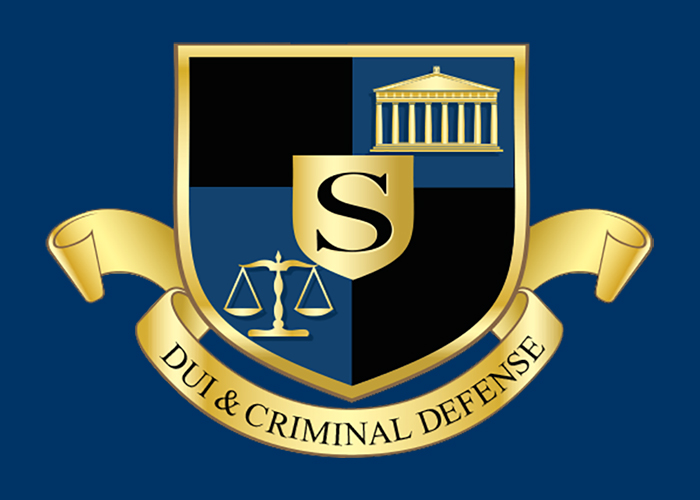Finding yourself on the wrong side of an impaired driving charge is a stressful experience with serious potential penalties. The path forward can seem confusing, but there are established legal defences and procedures that can lead to a withdrawal of charges or an acquittal. The key is to act quickly and secure professional legal representation from an experienced criminal lawyer Edmonton who can meticulously review every detail of your case.
This post is not legal advice but a general overview of potential avenues for defence against a DUI in Alberta. Every case has unique facts, and the success of any defence rests on the evidence and the skill of your legal counsel. Let’s look at some common areas that are examined when building a defence against an impaired driving charge. 🧐
Understanding DUI Charges in Alberta
First, it helps to know what you are up against. In Alberta, “DUI” is a general term for impaired driving offences under the Criminal Code of Canada. The main charges are Impaired Operation of a motor vehicle and Operating a motor vehicle with a blood alcohol concentration (BAC) “over 80.” This means you can be charged even if your BAC is below the legal limit if your ability to drive was impaired by alcohol or drugs.
The penalties for conviction are severe, including hefty fines, a criminal record, and mandatory driving prohibitions. The immediate consequences often involve an administrative license suspension, separate from any court-imposed penalties. Understanding the distinction between the provincial administrative sanctions and the federal criminal charges is a critical piece of the puzzle your lawyer will help you piece together.
The Initial Police Stop: Your Rights and Responsibilities
The very beginning of the interaction with law enforcement is a crucial point in any DUI case. Police must have a valid legal reason to stop your vehicle. A random stop for a sobriety check is generally permitted, but if the stop was based on a tip or an observation, the grounds for that stop can be examined. Did they have a reasonable suspicion that you had committed an offence?
During the stop, you have a right to remain silent and a right to contact a lawyer without delay. It is important to be polite and cooperative with police but you are not required to answer questions about where you were going, where you came from, or if you have been drinking. Any statements you make can be used against you, so exercising your right to silence until you have spoken to a lawyer is almost always the best course of action. 🤫
Challenging the Breathalyzer or Blood Test Results
The breathalyzer is a key piece of evidence for the prosecution, but it’s not infallible. The “over 80” charge relies entirely on the accuracy of the blood alcohol concentration reading. A strong defence can be built by questioning the reliability of the device or the procedure used to obtain the sample. Was the device calibrated correctly? Was it operated properly by the police officer?
There are also strict timelines that police must follow when demanding and taking a breath or blood sample. Any unreasonable delay could be grounds for excluding the evidence. Furthermore, a lawyer can review the maintenance and calibration logs for the specific instrument used in your test to find any irregularities that could cast doubt on the accuracy of the reading. 🧪
Questioning the Legality of the Stop
As mentioned earlier, the police need a lawful reason to pull you over in the first place, outside of organized check-stop programs. If an officer stops your vehicle based on a “hunch” or for reasons that are not supported by law, the entire case against you could fall apart. This is often referred to as an “arbitrary detention,” which is a violation of your rights.
For example, if an officer pulls you over for a minor traffic infraction like a broken taillight and then begins a DUI investigation without reasonable suspicion, every piece of evidence gathered after that point could be deemed inadmissible. A defence lawyer will carefully scrutinize the police officer’s notes and testimony to determine if the initial stop was justified. If not, it can be a powerful argument in court.
The Importance of Charter Rights Violations
The Canadian Charter of Rights and Freedoms protects all citizens from certain state actions. In a DUI investigation, several of these rights are in play. The most common one is the “right to counsel,” which gives you the right to speak with a lawyer in private and without delay upon being detained. Police have an obligation to inform you of this right and provide a reasonable opportunity to exercise it.
If the police failed to inform you of your rights properly, or if they downplayed the seriousness of your situation, or interfered with your ability to contact a lawyer, any evidence they collected afterward could be excluded. A successful Charter application can result in breath test results being thrown out, which often leads to the entire case being dismissed. This is a highly technical area of law where an expert lawyer is absolutely essential. ⚖️
Negotiating a Plea Bargain or Alternative Measures
Sometimes, the evidence against you might be strong. In these situations, fighting the charge at trial may not be the most sensible approach. Your lawyer can engage in discussions with the Crown prosecutor to negotiate a plea to a lesser offence, such as a careless driving ticket under the Traffic Safety Act instead of a criminal conviction.
For first-time offenders in certain circumstances, there may be options for alternative measures or diversion programs. These programs could allow you to avoid a criminal record by completing certain conditions, like community service or an educational program. A lawyer knows when and how to approach these negotiations to achieve the best possible result for your situation, potentially saving your license and your clean record.
The Role of a Skilled Defence Lawyer
You may have noticed a common theme: the critical importance of having a skilled legal professional on your side. An experienced DUI lawyer does more than just show up to court. They conduct a thorough review of all the evidence, including police notes, witness statements, and video footage, looking for any weakness in the Crown’s case.
From questioning the legality of the initial stop to challenging the technical aspects of a breath test, your lawyer is your advocate. They understand the complex legal arguments and court procedures necessary to defend your rights effectively. Attempting to handle a DUI charge on your own puts you at a massive disadvantage and risks a conviction that could have been avoided. Getting the right help is the most important move you can make.

